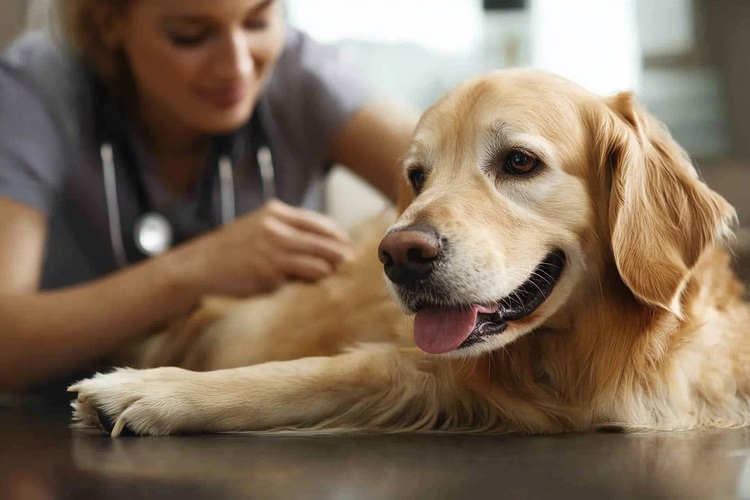How to Find and Choose Healthy German Shepherd Puppies for Sale
German Shepherds are among the most sought-after dog breeds, known for their intelligence, loyalty, and versatility as both family companions and working dogs. Finding a healthy German Shepherd puppy requires careful research, understanding of breeding practices, and preparation for the significant commitment these remarkable dogs represent. The process involves evaluating potential sources, assessing health standards, understanding costs, and preparing your home for a new family member.

German Shepherds consistently rank as one of the most popular dog breeds worldwide, combining exceptional intelligence with unwavering loyalty and protective instincts. These versatile dogs excel as family pets, service animals, and working dogs in various fields including law enforcement and search and rescue. However, their popularity has led to both responsible breeding practices and unfortunate puppy mills, making careful selection crucial for prospective owners.
Where to Look: Reputable Breeders, Rescues, and Classified Listings
Reputable breeders represent the gold standard for acquiring healthy German Shepherd puppies. These professionals focus on breeding for temperament, health, and breed standards rather than profit alone. Look for breeders who are members of recognized kennel clubs, participate in dog shows or working trials, and willingly provide health clearances for both parent dogs. They typically have waiting lists and interview potential buyers to ensure suitable homes.
German Shepherd rescues and breed-specific organizations offer another excellent option, particularly for those open to slightly older puppies or young adults. These organizations often have detailed knowledge about each dog’s temperament and health status, having provided veterinary care and behavioral assessment during their stay.
Classified listings, whether online or in newspapers, require extreme caution. While legitimate breeders may advertise through these channels, they’re also common venues for puppy mills and backyard breeders. Always insist on meeting the puppy’s parents, visiting the breeding facility, and obtaining health documentation before considering any purchase.
How to Evaluate Breeder Practices and Puppy Health Checks
Legitimate breeders welcome visits to their facilities and encourage interaction with parent dogs. The breeding environment should be clean, spacious, and allow dogs to exhibit natural behaviors. Parents should display stable temperaments and appear healthy, well-socialized, and comfortable with human interaction.
Health testing represents a non-negotiable aspect of responsible breeding. German Shepherds are prone to hip dysplasia, elbow dysplasia, and degenerative myelopathy. Reputable breeders provide certification from organizations like the Orthopedic Foundation for Animals (OFA) or PennHIP for both parents. They should also test for genetic conditions specific to the breed and provide documentation of these results.
Puppies should receive initial veterinary examinations, including health certificates from licensed veterinarians. Responsible breeders begin socialization early, exposing puppies to various sounds, surfaces, and experiences during the critical developmental period between three and fourteen weeks of age.
Typical Costs, Contracts, and What’s Included in the Sale
German Shepherd puppy prices vary significantly based on bloodline, breeder reputation, geographic location, and intended purpose. Understanding these cost factors helps set realistic expectations and budget appropriately.
| Source Type | Price Range | What’s Typically Included |
|---|---|---|
| Reputable Breeders | $1,200 - $3,500 | Health certificates, initial vaccinations, microchip, registration papers |
| Show/Working Lines | $2,500 - $5,000+ | Extensive health testing, champion bloodlines, training evaluation |
| Rescue Organizations | $200 - $800 | Spay/neuter, vaccinations, microchip, behavioral assessment |
| Pet Stores/Mills | $800 - $2,000 | Limited health guarantees, basic vaccinations |
Prices, rates, or cost estimates mentioned in this article are based on the latest available information but may change over time. Independent research is advised before making financial decisions.
Purchase contracts should clearly outline health guarantees, return policies, and breeding restrictions if applicable. Quality breeders typically offer health guarantees covering genetic conditions for at least two years and may require spay/neuter agreements for pet-quality puppies.
Early Care: Vaccinations, Deworming, and Initial Veterinary Needs
Proper veterinary care begins before you bring your puppy home. Reputable sources provide initial vaccinations, typically starting between six and eight weeks of age. The standard puppy vaccination series includes protection against distemper, hepatitis, parvovirus, parainfluenza, and adenovirus, with boosters required every three to four weeks until sixteen weeks of age.
Deworming protocols should begin early, as intestinal parasites are common in puppies. Most receive their first deworming treatment between two and three weeks of age, with subsequent treatments following veterinary recommendations based on fecal examinations.
Establishing a relationship with a veterinarian before bringing your puppy home ensures continuity of care and immediate access to professional guidance. Schedule a wellness examination within the first few days of ownership to establish baseline health records and discuss vaccination schedules, nutrition requirements, and preventive care protocols.
Preparing Homecoming: Socialization, Basic Training, and Supplies
Successful German Shepherd ownership begins with proper preparation and understanding of the breed’s needs. These intelligent, high-energy dogs require consistent mental and physical stimulation throughout their lives.
Socialization remains critical during the first few months, particularly between eight and sixteen weeks of age. Expose your puppy to various people, animals, environments, and experiences in a controlled, positive manner. Puppy socialization classes provide structured environments for learning appropriate social behaviors while building confidence.
Basic training should begin immediately, focusing on house training, crate training, and fundamental commands like sit, stay, and come. German Shepherds excel at learning and respond well to positive reinforcement techniques. Consistency and patience during these early months establish the foundation for lifelong good behavior.
Essential supplies include appropriately sized crates, high-quality puppy food, food and water bowls, collar and leash, identification tags, toys for mental stimulation, and grooming supplies. German Shepherds shed considerably, making regular brushing tools necessary investments.
Finding the right German Shepherd puppy requires patience, research, and commitment to responsible ownership practices. By focusing on reputable sources, understanding health requirements, and preparing adequately for your new companion, you’re setting the stage for years of rewarding partnership with one of the world’s most remarkable dog breeds.




